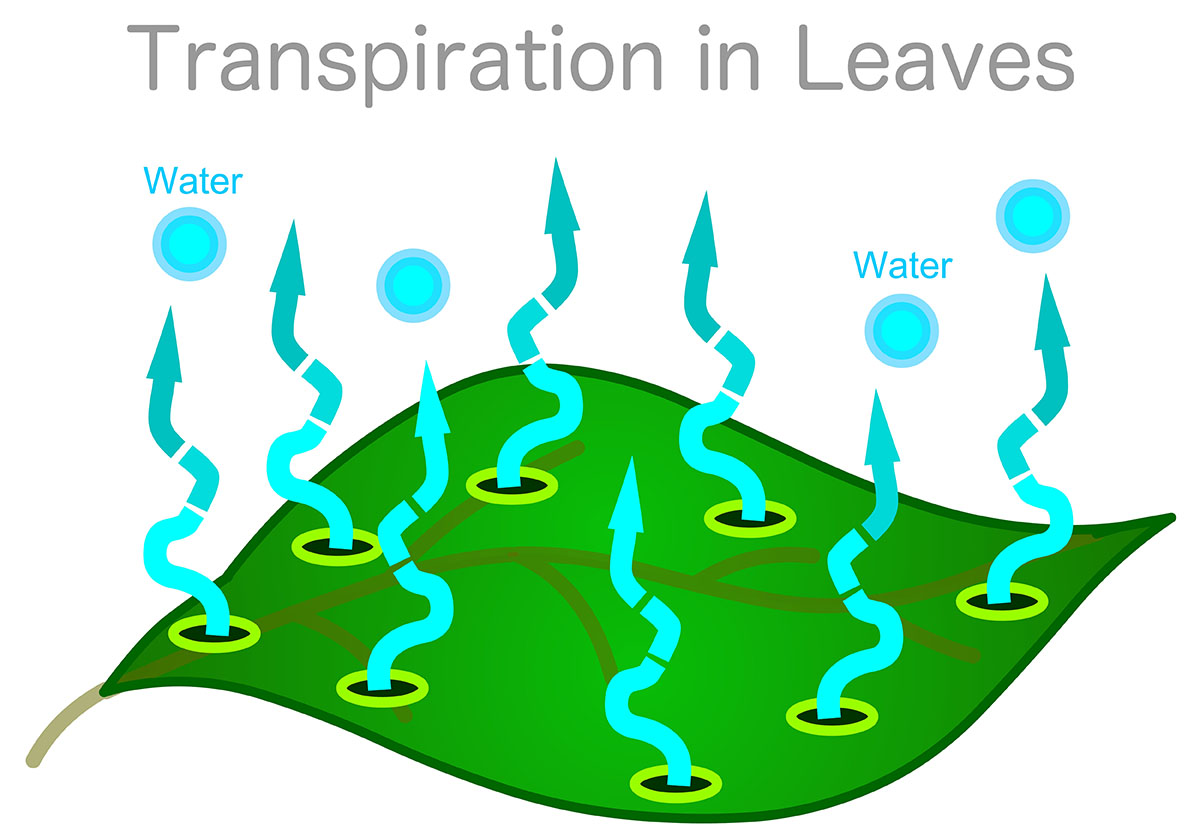
transpiration
Definition
Transpiration is the process by which plants lose water through their leaves. Water evaporates from the leaves and enters the atmosphere.
Transpiration is important for plants because it helps to cool them down and to transport water and nutrients throughout the plant.
Here is how transpiration works:
- Water is absorbed by the roots of the plant and travels up the stem to the leaves.
- The leaves have tiny pores called stomata.
- The stomata open and close to control the amount of water that evaporates from the leaves.
- Water evaporates from the leaves and enters the atmosphere.
- Transpiration is a continuous process. It happens day and night, even when it is raining.
How can the word be used?
The rate of transpiration is affected by the temperature, humidity, and wind speed.

Different forms of the word
Noun:
the process by which water vapour is released from the leaves of plants into the atmosphere.
Verb:
to release water vapour from the leaves of plants into the atmosphere.
Etymology
The word "transpiration" comes from the Latin words "trans" and "spirare", which mean "through" and "breathe" respectively.
The first recorded use of the word "transpiration" in English was in the 17th century.
The word "transpiration" is a Latin word, and it is related to the Italian word "traspirazione" and the Spanish word "transpiración".
Question
What is transpiration?